Scales for Writers
by
Linda Rodriguez
Linda Rodriguez
Pianists
know they must practice every day, playing scales and various
exercises that stretch the fingers and give them the flexibility and
dexterity that they will need to play complicated compositions. Long
ago, I read in one of Madeleine L’Engle’s wonderful journals of life
and writing about this need for writers.
know they must practice every day, playing scales and various
exercises that stretch the fingers and give them the flexibility and
dexterity that they will need to play complicated compositions. Long
ago, I read in one of Madeleine L’Engle’s wonderful journals of life
and writing about this need for writers.
“Nobody
can teach creative writing–run like mad from anybody who thinks he
can. But one can teach practices, like finger exercises on the piano;
one can share the tools of the trade, and what one has gleaned from
the great writers: it is the great writers themselves who do the
teaching.” –A
Circle of Quiet
can teach creative writing–run like mad from anybody who thinks he
can. But one can teach practices, like finger exercises on the piano;
one can share the tools of the trade, and what one has gleaned from
the great writers: it is the great writers themselves who do the
teaching.” –A
Circle of Quiet
For
years now, I’ve created my own finger exercises, as well as borrowing
from other writers who’ve written books about writing, and used them
in my journals. I turn to these when I have only tiny stolen moments
to write, such as while waiting for a doctor/mechanic/meeting, or
when I find myself facing resistance on my current project, or when
I’ve finished one thing and don’t know what to work on next (this
rarely happens to me anymore since I always have a long list of
projects to tend to). Here are a few of the ones I’ve found most
helpful.
years now, I’ve created my own finger exercises, as well as borrowing
from other writers who’ve written books about writing, and used them
in my journals. I turn to these when I have only tiny stolen moments
to write, such as while waiting for a doctor/mechanic/meeting, or
when I find myself facing resistance on my current project, or when
I’ve finished one thing and don’t know what to work on next (this
rarely happens to me anymore since I always have a long list of
projects to tend to). Here are a few of the ones I’ve found most
helpful.
Invent
a character. I do this when in a public place, such as that
doctor’s office. Choose a stranger and invent an entire backstory,
personality, name, and occupation for that person. If you have plenty
of time, go on to put them in dialogue with someone.
a character. I do this when in a public place, such as that
doctor’s office. Choose a stranger and invent an entire backstory,
personality, name, and occupation for that person. If you have plenty
of time, go on to put them in dialogue with someone.
Describe
a person or a scene in detail using only metaphors.
a person or a scene in detail using only metaphors.
Describe
a scene through a character’s consciousness, using all five senses
but not one sense verb (“saw,” “smelled,” “heard,”
“felt,” or “tasted”). Extend this by also omitting any
pronoun referring to your viewpoint character (such as “he,”
“him,” or “his”).
a scene through a character’s consciousness, using all five senses
but not one sense verb (“saw,” “smelled,” “heard,”
“felt,” or “tasted”). Extend this by also omitting any
pronoun referring to your viewpoint character (such as “he,”
“him,” or “his”).
Write
an action scene entirely in short, quick sentences to give a sense of
a fast pace. Then, write it again in a few long, involved
sentences so that the action builds in a reckless, headlong pace.
an action scene entirely in short, quick sentences to give a sense of
a fast pace. Then, write it again in a few long, involved
sentences so that the action builds in a reckless, headlong pace.
Write
a paragraph or a scene entirely in simple, plain words that come from
Anglo-Saxon (such as “walk,” “yearly,” “leaf”). Then,
rewrite it entirely in Latinate words (such as “amble,” “annual,”
or“foliage”), and notice the change in pace and tone.
a paragraph or a scene entirely in simple, plain words that come from
Anglo-Saxon (such as “walk,” “yearly,” “leaf”). Then,
rewrite it entirely in Latinate words (such as “amble,” “annual,”
or“foliage”), and notice the change in pace and tone.
Describe
a landscape or the decoration of a room without using any color
names.
a landscape or the decoration of a room without using any color
names.
Write
a scene in dialogue between two people who want opposing things and
who are hearing only what they want to hear and speaking to that, as
if it had actually been said, instead of what the other person is
saying.
a scene in dialogue between two people who want opposing things and
who are hearing only what they want to hear and speaking to that, as
if it had actually been said, instead of what the other person is
saying.
Write
a scene where one person in a marriage is afraid the other is having
an affair while the other is actually afraid they have cancer and
keeping their medical appointments secret. Each of them is trying
to appear as if nothing is wrong and cannot tell the other what
they’re afraid of.
a scene where one person in a marriage is afraid the other is having
an affair while the other is actually afraid they have cancer and
keeping their medical appointments secret. Each of them is trying
to appear as if nothing is wrong and cannot tell the other what
they’re afraid of.
Describe
yourself, using only specific objects or sayings and songs from your
past. Do this now with a fictional character.
yourself, using only specific objects or sayings and songs from your
past. Do this now with a fictional character.
As
you can see, I could go on and on with these writers’ finger
exercises, and I have through the years. They’re a part of the way I
keep my writing brain nimble and dexterous and develop my skills. I
have used them in teaching creative writing classes, as well, and the
students have found them helpful. Give them a try, and then invent
your own.
you can see, I could go on and on with these writers’ finger
exercises, and I have through the years. They’re a part of the way I
keep my writing brain nimble and dexterous and develop my skills. I
have used them in teaching creative writing classes, as well, and the
students have found them helpful. Give them a try, and then invent
your own.
Do
you ever practice your writing, other than work on your current
project?
you ever practice your writing, other than work on your current
project?
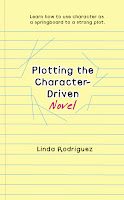 Linda Rodriguez’s Dark Sister: Poems
Linda Rodriguez’s Dark Sister: Poemsis her 10th book. Plotting the Character-Driven Novel,
based on her popular workshop, and The World Is One Place: Native
American Poets Visit the Middle East, an anthology she co-edited,
were published in 2017. Every Family Doubt, her fourth
mystery featuring Cherokee detective, Skeet Bannion, and Revising
the Character-Driven Novel will be published in 2019. Her three
earlier Skeet novels—Every Hidden Fear, Every Broken
Trust, Every Last Secret—and
earlier books of poetry—Skin Hunger
and Heart’s Migration—have
received critical recognition and awards, such as St. Martin’s
Press/Malice Domestic Best First Novel, International
Latino Book Award, Latina Book Club Best Book of 2014, Midwest Voices
& Visions, Elvira Cordero Cisneros Award, Thorpe Menn Award, and
Ragdale and Macondo fellowships. Her short story, “The Good
Neighbor,” published in Kansas City Noir, has been optioned
for film.
Rodriguez is past chair of the AWP
Indigenous Writer’s Caucus, past president of Border Crimes chapter
of Sisters in Crime, founding board member of Latino Writers
Collective and The Writers Place, and a member of International
Thriller Writers, Native Writers Circle of the Americas, Wordcraft
Circle of Native American Writers and Storytellers, and Kansas City
Cherokee Community. Visit her at
http://lindarodriguezwrites.blogspot.com
Indigenous Writer’s Caucus, past president of Border Crimes chapter
of Sisters in Crime, founding board member of Latino Writers
Collective and The Writers Place, and a member of International
Thriller Writers, Native Writers Circle of the Americas, Wordcraft
Circle of Native American Writers and Storytellers, and Kansas City
Cherokee Community. Visit her at
http://lindarodriguezwrites.blogspot.com


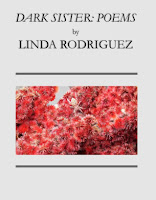
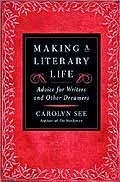
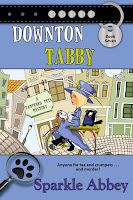


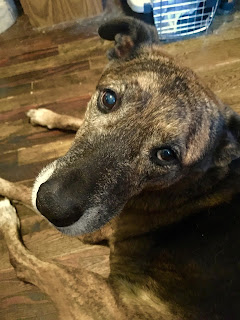
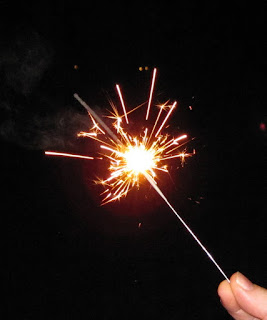

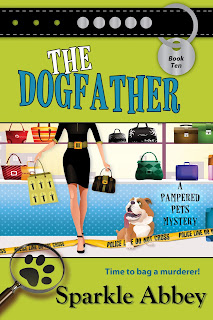

Awesome! Makes my fingers itchy for the keyboard!
Best put them to work then, T.K. 😉
A wonderful and inspiring blog. Thank you!
Hope you find it helpful, Marie.
I want to READ some of those experiments. The pronoun avoidance reminded me of the officers and me of Judith Merrill's "Survival Ship." 😉
Ah, Mary! No one sees those but me. It's more freeing that way.
Thank you for the info. Very helpful for me.
Juliana, other folks are saying that it's been helpful for them, as well. I made post some writing exercises like every couple of months, if it would be useful.
I have a doctor's appointment tomorrow. Looking forward to some exercise while I'm in the waiting room. Great ideas–thanks for the insight and inspiration!
Let me know how it goes, Lynn. I hope you'll find it useful.